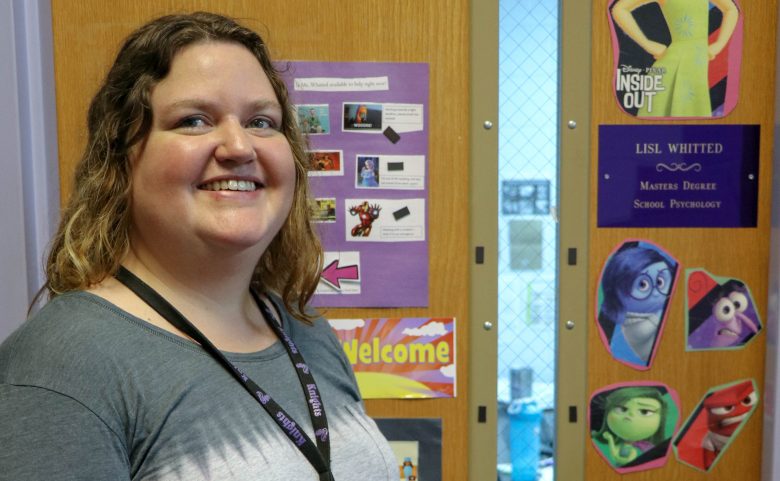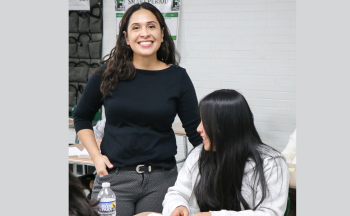In honor of National School Psychology Awareness Week (November 12-16 2018), we’re introducing you to each of our 10 school psychologists, and letting them explain what their jobs in our schools look like. They’re also going to debunk some common misconceptions about their roles (hint: they do not have fainting couches in their offices).
Meet: Lisl Whitted, MSP
What are some of your favorite parts of the job?
I love the problem-solving aspect of my job. I love to sit down with parents and teachers and take data that I have gathered through assessment or observation and connect it to what the parents and teachers have experienced with the student to find concrete ways to help support the child. I am especially passionate about supporting students on the Autism spectrum – mainly through my work on the district’s Autism Evaluation Team.
How do you help parents and teachers through your work on the Autism Evaluation Team?
I help contextualize student behavior to parents and teachers. Every child is unique, and therefore Autism will look different for each child we serve. I like being able to show how a particular facet of Autism Spectrum Disorder correlates with a child’s particular classroom behavior or academic difficulty – really taking this abstract concept and explaining what it means for this specific child. I think it gives parents and teachers a different lens through which to view the child’s behavior, and also puts emphasis back on student strengths to be nurtured. Plus, these are just some of my favorite kids to work with, as they have such a unique take on the world.
What are some myths about the role of a school psychologist you’d like to dispel?
That all we can do is test! Assessment is a very important part of our role, and is probably the most specialized service we provide, but we are trained in behavior management, counseling and mental health support, data analysis and child development as well.
Another common misconception is that we can only help students with special needs or students who are being referred for Exceptional Children services. We are here to support all students and student learning, and whatever that may individually mean for them: academics, mental health, behavioral support, social/emotional support, etc. We also work collaboratively with teachers to find strategies that may have been tailored for specific students, but can be beneficial to all students in a classroom.






